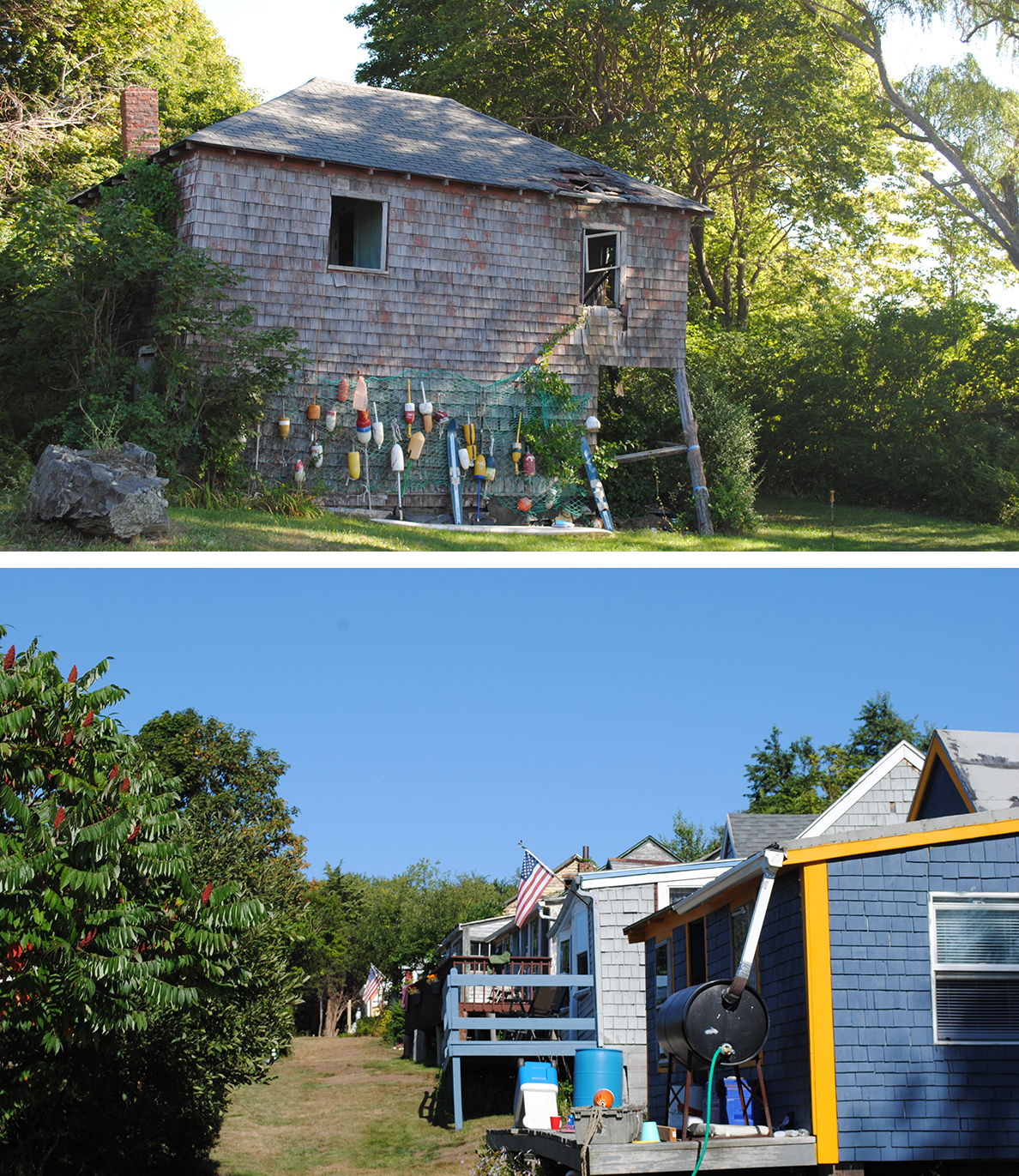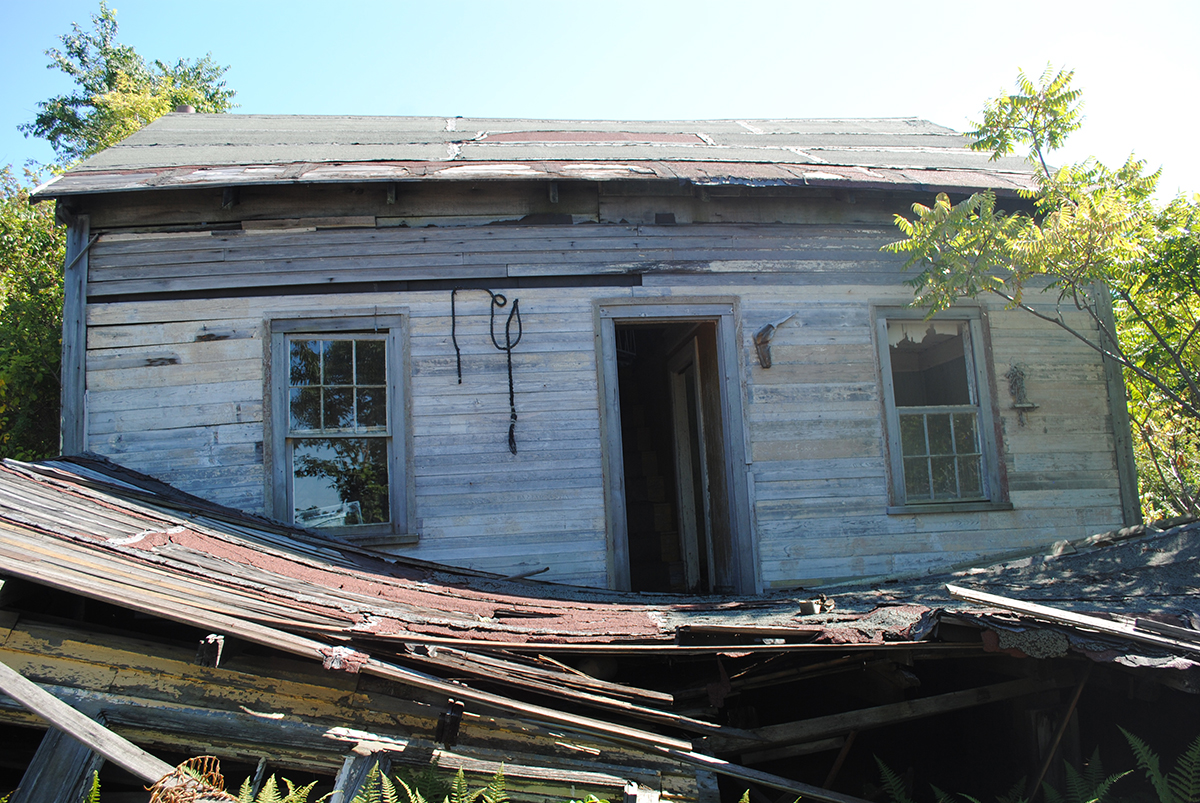Throwback Thursday: When Portuguese Fishermen Floated Their Cottages Across Boston Harbor

Photos by Madeline Bilis
Renting a U-Haul truck months in advance for moving on September 1 in Boston doesn’t seem so bad compared to the way a group of Portuguese fishermen moved in 1887.
These fishermen and lobstermen geared up for island hopping—instead of street occupancy permits—making the move to Peddocks Island in Boston Harbor after the city took control of their original settlement, Long Island. But rather than rebuild their modest cottage colony on the new island, they floated their homes across the harbor to get them there.
Such a feat is certainly impressive for the time. Although there are understandably no photos of the event, author of Discovering the Boston Harbor Islands Christopher Klein explained the fishermen most likely completed the task using empty barrels for flotation, similar to the method of Alex Bies, a later inhabitant of Peddocks who also floated his home in the harbor in 1910.
Bies’s maneuver is documented in his daughter’s memoir, Once Upon an Island:
Moving it over land presented many problems. The roads were rough and narrow. There was a hill to climb and descend. To take it down stick by stick and rebuild it presented as much difficulty, and time was of the essence. The only way left to move it was by water. Dad was confronted with the Herculean task of floating the house a half mile around the Island on a raft…
Imagination, ingenuity, and common sense proved to be the solution. He would ask permission for the use of the Army tugs to tow it around the East Head of the Island. By Jove, that would do it! He would make a raft and tie buoyant empty barrels beneath it… After some calculation, the decided number of barrels was procured and the task of accomplishing the project was begun.
While much history has unfolded on the island—it was home to an Italian POW camp during World War II and was used in the filming of Martin Scorsese’s Shutter Island, to name a few events—the Portuguese cottage colony has remained.
Located in an area called Crab Alley, the colorful cottages serve as homes for a lucky few—some of whom are descendants of the Portuguese fishermen. When the state of Massachusetts purchased the island in 1970, it required the inhabitants to pay a yearly fee for use of the public land beneath the structures. Once these inhabitants pass away or move away, however, they relinquish their rights to the cottages, and they aren’t able to be passed on to next of kin.
A few cottages have already been turned over to the state, and some are dilapidated and decaying. The future for the former Portuguese village is uncertain, as the cottages could be removed from the public land.
“I’d love to see them preserved in some way because it’s really the last connection to this personal history to these people out on the islands and the people who’ve been living on the islands for thousands of years,” Klein says. “It’s an important part of the history.”

Photo by Madeline Bilis

